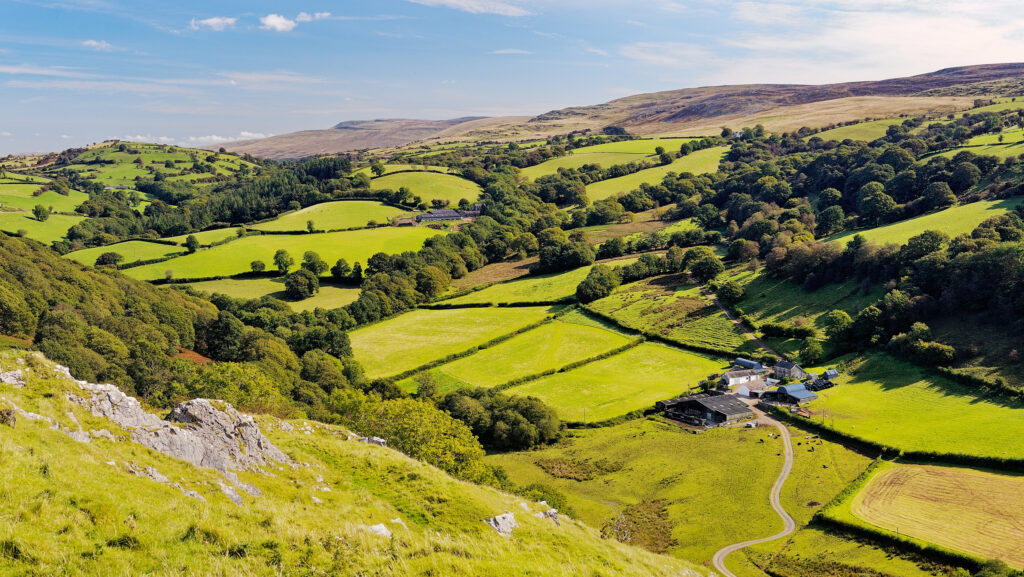SFS uptake likely to hinge on payment rates
 © Adobe Stock
© Adobe Stock Farming unions in Wales have reiterated concerns over payment rates and levels of practicality of the Sustainable Farming Scheme (SFS), due to be finalised next week.
The scheme, including details on payment rates, is expected to be announced in Cardiff ahead of the Royal Welsh Show.
The industry has worked hard to see principles included in the SFS – which replaces the current legacy Basic Payment Scheme (BPS) – that underpin food production and provide a fair reward for farmers delivering “public goods”, including environmental and societal benefits.
The scheme will aim to deliver against the Agriculture (Wales) Act’s sustainable land management objectives, with a clear focus on environmental outcomes.
See also: Welsh Sustainable Farming Scheme: All you need to know
SFS details so far
- Three tiers – Universal, Optional, Collaborative – starting in 2026.
- The Universal layer includes 12 actions, which farmers must complete to qualify for an entry-level payment – for example, maintaining semi-natural habitats, such as wetlands and species-rich grasslands.
- The Optional layer is intended to top up farm incomes. Actions might include additional carbon sequestration work.
- The Collaborative layer will support farmers to work together and with other organisations on joint projects that deliver economic, environmental or social benefits.
- To apply for the SFS Universal payment, farmers will need to complete the single application form (SAF) annually.
- From 2026, farmers can choose either SFS or BPS via their SAF, though once farmers have selected the SFS, they can’t revert to the BPS.
- Welsh government proposes to phase out BPS through an incremental reduction in value – expected to be 20% per year.
Protecting family farms
Farming unions have maintained that any future payment scheme based on environmental and public goods outcomes must also protect family farms, support rural communities and Welsh jobs, while ensuring agriculture is both sustainable and rewarding.
“To fail to do so would lead to serious damage to Wales’ family farms and the role they play in Wales’ economy, society, culture and landscape,” says Farmers’ Union of Wales (FUW) head of policy Gareth Parry.
NFU Cymru was also clear that the final scheme needs to be easy to administer, while being practical and achievable at farm level, irrespective of farming sector or location.
“We also need those investment measures to support efforts to enhance on-farm productivity and competitiveness, recognising that Welsh farming is the cornerstone of the £9bn Welsh food and drink industry,” says NFU Cymru national environment and land use adviser Rachel Lewis-Davies.
The scheme has seen some progress since deputy first minister Huw Irranca-Davies took over the portfolio in 2024 and the unions agree that some major concessions have been made, for example on the 10% tree cover requirement that sparked fury among farmers.
The FUW says it is hopeful that with the work that has gone into shaping the final version of the scheme over the past year, it should be in a good place by the time it is published.
However, NFU Cymru says questions remain as to whether farmers across Wales will get behind the entirety of the Universal layer.
Payments
Enthusiasm for the SFS will to a degree depend on the payment rates.
If the previous budget under the common agricultural policy is anything to go by, and taking inflationary uplift into account, the Welsh government would have to make no less than £500m available for the SFS.
“We need to see government support its ambition for the scheme with adequate budget and payment rates that are attractive and provide fair reward to farmers,” says Mrs Lewis-Davies.
The Welsh government through modelling, she adds, must demonstrate that the scheme provides the same stability for farm businesses, the supply chain and rural communities as the BPS does currently.
Sticking points
However, several other sticking points remain, including whether existing hedgerows count as habitat features, the flexibility of habitat maintenance requirements, and the ability for all to reach the requirement for each farm to provide at least 10% habitat.
Access for tenants and support for common land grazing rights holders, as well as the overall bureaucracy of the compulsory elements of the SFS, are elements unions want to see change on.
